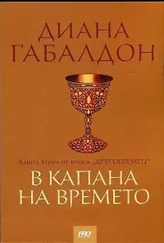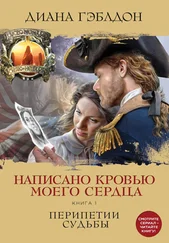Диана Гэблдон - Drums of Autumn 4
Здесь есть возможность читать онлайн «Диана Гэблдон - Drums of Autumn 4» весь текст электронной книги совершенно бесплатно (целиком полную версию без сокращений). В некоторых случаях можно слушать аудио, скачать через торрент в формате fb2 и присутствует краткое содержание. Год выпуска: 2010, ISBN: 2010, Издательство: Random House Publishing Group, Жанр: Старинная литература, на английском языке. Описание произведения, (предисловие) а так же отзывы посетителей доступны на портале библиотеки ЛибКат.
- Название:Drums of Autumn 4
- Автор:
- Издательство:Random House Publishing Group
- Жанр:
- Год:2010
- ISBN:9780440335177
- Рейтинг книги:4 / 5. Голосов: 1
-
Избранное:Добавить в избранное
- Отзывы:
-
Ваша оценка:
- 80
- 1
- 2
- 3
- 4
- 5
Drums of Autumn 4: краткое содержание, описание и аннотация
Предлагаем к чтению аннотацию, описание, краткое содержание или предисловие (зависит от того, что написал сам автор книги «Drums of Autumn 4»). Если вы не нашли необходимую информацию о книге — напишите в комментариях, мы постараемся отыскать её.
Drums of Autumn 4 — читать онлайн бесплатно полную книгу (весь текст) целиком
Ниже представлен текст книги, разбитый по страницам. Система сохранения места последней прочитанной страницы, позволяет с удобством читать онлайн бесплатно книгу «Drums of Autumn 4», без необходимости каждый раз заново искать на чём Вы остановились. Поставьте закладку, и сможете в любой момент перейти на страницу, на которой закончили чтение.
Интервал:
Закладка:
“Putting aside the question of whether sperm have faces, what has that particular subject got to do with health?”
“Health is an American euphemism for anything to do with sex,” she explained. “They teach girls and boys separately; the girls’ class is The Mysteries of Life, and Ten Ways to Say No to a Boy.”
“And the boys’ class?”
“Well, I don’t know for sure, because I didn’t have any brothers to tell me. Some of my friends had brothers, though—one of them said they learned eighteen different synonyms for penile erection.”
“Really useful, that,” Roger said, wondering why anyone required more than one. Luckily, a sporran covered a multitude of sins.
“I suppose it might keep the conversation going—under certain circumstances.”
Her cheeks were red. He could feel the heat creeping up his own throat, and imagined that they were beginning to attract curious glances from passersby. He hadn’t let a girl embarrass him in public since he was seventeen, but she was doing nicely. She’d started it, though—let her finish it, then.
“Mmphm. I hadn’t noticed much conversation, under those particular circumstances.”
“I imagine you’d know.” It wasn’t quite a question. Rather late, he realized what she was up to. He tightened his arm, pulling her closer.
“If you mean have I, yes. If you mean am I, no.”
“Are you, what?” Her lips were quivering slightly, holding back the urge to laugh.
“You’re asking if I’ve got a girl in England, right?”
“Am I?”
“I don’t. Or rather I do, but nothing serious.” They were outside the door to the dressing rooms; nearly time to fetch his instruments. He stopped and turned to look at her. “Have you? Got a bloke, I mean.”
She was tall enough to look him in the eye, and close enough that her breasts grazed his forearm when she turned to face him.
“What was it your great-grandmother said? ‘ Is fhearr an giomach.…’? ”
“ ‘…na ’bhi gun fear tighe.’ ”
“Uh-huh. Well, better a lobster than no boyfriend.” She lifted a hand and touched his brooch. “So yes, there are people I go out with. But I don’t have a bonny lad—yet.”
He caught her fingers and brought them to his mouth.
“Give it time, lass,” he said, and kissed them.
The audience was amazingly quiet; not at all like a rock concert. Of course, they couldn’t be noisy, she thought; there weren’t any electric guitars or amplifiers, only a small microphone on a stand. But then, some things didn’t need amplifying. Her heart, for one, hammering in her ears.
“Here,” he’d said, appearing abruptly out of the dressing room with guitar and drum. He’d handed her a small brown envelope. “I found these, going through my dad’s old bumf in Inverness. I thought you’d maybe want them.”
She could tell it was photographs, but she hadn’t looked at them right away. She’d sat with them burning a hole on her knee, listening to Roger’s set.
He was good—even distracted, she could tell he was good. He had a surprisingly rich deep baritone voice, and he knew what to do with it. Not just in terms of tone and melody; he had the true performer’s ability to pull aside the curtain between singer and audience, to look out into the crowd, meet someone’s eyes, and let them see what lay behind both words and music.
He’d got them going with “The Road to the Isles,” a quick and lively clap-along song with a rousing chorus, and when they’d subsided from that, kept them going with “The Gallowa’ Hills,” and a sweet slide into “The Lewis Bridal Song,” with a lovely, lilting chorus in Gaelic.
He let the last note die away on “Vhair Me Oh,” and smiled, directly at her, she thought.
“And here’s one from the ’45,” he said. “This one is from the famous battle of Prestonpans, at which the Highland Army of Charles Stuart routed a much greater English force, under the command of General Jonathan Cope.”
There was an appreciative murmur from the crowd, for many of whom the song was plainly an old favorite, quickly shushed as Roger’s fingers plucked out the marching line. “Cope sent a challenge from Dunbar
Sayin’ ‘Charlie, meet me, and ye daur
An’ I’ll learn ye the art o’ war
If ye’ll meet me in the mornin’.’ ”
He bent his head over the strings, nodding to the crowd to join in the jeering chorus. “Hey, Johnnie Cope, are ye walkin’ yet?
And are your drums a-beatin’ yet?
If ye were walkin’, I would wait
Tae gang tae the coals in the mornin’!”
Brianna felt a sudden prickle at the roots of her hair that had nothing to do with singer or crowd, but with the song itself. “When Charlie looked the letter upon,
He drew his sword the scabbard from,
Come, follow me, my merry men,
And we’ll meet Johnnie Cope in the morning!”
“No,” she whispered, her fingers cold on the smooth brown envelope. Come follow me, my merry men …They’d been there—both her parents. It was her father who had charged the field at Preston, his broadsword and his targe in his hands. “…For it will be a bluidie morning!”
“Hey, Johnnie Cope, are ye walkin’ yet?
And are your drums a-beatin’ yet?…”
The voices rose around her in a roar of approbation as they joined in the chorus. She had a moment of rising panic, when she would have fled away like Johnnie Cope, but it passed, leaving her buffeted by emotion as much as by the music. “In faith, quo Johnnie, I got sic flegs,
Wi’ their claymores an’ philabegs,
Gin I face them again, de’il brak my legs,
So I wish you a’ good morning!
Hey, Johnnie Cope, are ye walkin’ yet?…”
Yes, he was. And he would be, as long as that song lasted. Some people tried to preserve the past; others, to escape it. And that was by far the greatest gulf between herself and Roger. Why hadn’t she seen it before?
She didn’t know whether Roger had seen her momentary distress, but he abandoned the dangerous territory of the Jacobites and went into “MacPherson’s Lament,” sung with no more than an occasional touch of the strings. The woman next to Brianna let out a long sigh and looked doe-eyed at the stage. “Sae rantingly, sae wantonly, sae dauntingly gaed he,
He played a tune and he danced it roond…alow the gallows tree!”
She picked up the envelope, weighing it on her fingers. She ought to wait, maybe, until she got home. But curiosity was warring with reluctance. Roger hadn’t been sure he should give it to her; she’d seen that in his eyes.
“…a bodhran,” Roger was saying. The drum was no more than a wooden hoop, a few inches wide, with a skin head stretched over it, some eighteen inches across. He held the drum balanced on the fingers of one hand, a small double-headed stick in the other. “One of the oldest known instruments, this is the drum with which the Celtic tribes scared the bejesus out of Julius Caesar’s troops in 52 BC.” The audience tittered, and he touched the wide drumhead with the stick, back and forth in a soft, quick rhythm like a heartbeat.
“And here’s ‘The Sheriffmuir Fight,’ from the first Jacobite Rising, in 1715.”
The drumhead shifted and the beat dropped in pitch, became martial in tone, a thundering behind the words. The audience was still well-behaved, but now sat up and leaned forward, hanging on the chant that described the battle of Sheriffmuir, and all the clans who had fought in it.
“…then on they rushed, and blood out-gushed, and many a puke did fall, man…
Читать дальшеИнтервал:
Закладка:
Похожие книги на «Drums of Autumn 4»
Представляем Вашему вниманию похожие книги на «Drums of Autumn 4» списком для выбора. Мы отобрали схожую по названию и смыслу литературу в надежде предоставить читателям больше вариантов отыскать новые, интересные, ещё непрочитанные произведения.
Обсуждение, отзывы о книге «Drums of Autumn 4» и просто собственные мнения читателей. Оставьте ваши комментарии, напишите, что Вы думаете о произведении, его смысле или главных героях. Укажите что конкретно понравилось, а что нет, и почему Вы так считаете.
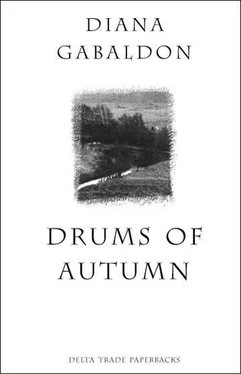
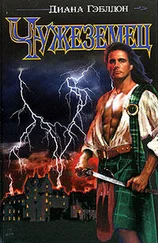
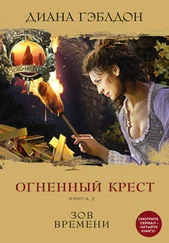
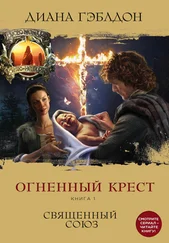
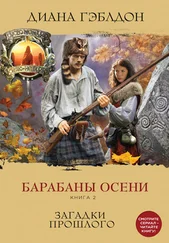
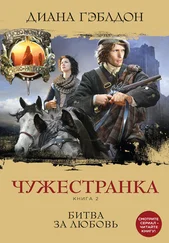
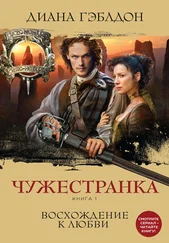
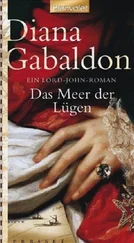
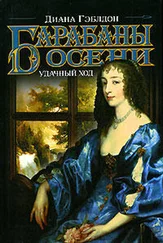

![Диана Гэблдон - Дыхание снега и пепла. Книга 2. Голос будущего [litres]](/books/421947/diana-gebldon-dyhanie-snega-i-pepla-kniga-2-golo-thumb.webp)
